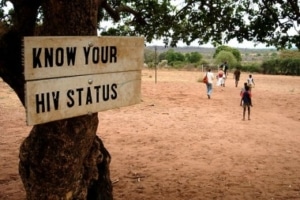Goal
To provide evaluation and technical services to help USAID/Zambia understand and learn from its efforts to combat HIV/AIDS in the country.
Activities
- Performance Evaluation of the Community Empowerment through Self-Reliance (COMETS) Project
- End of project performance evaluation of USAID/Zambia’s Local Partners Capacity Building (LPCB) project
- Zambia HIV/AIDS Prevention, Care and Treatment (ZPCT II)
SI used a mixed-methods approach for the performance evaluations. In-country data collection included focus groups, key informant interviews, and site visits. SI completed qualitative and quantitative data analysis, including content analysis of interviews and descriptive quantitative analyses of project monitoring and evaluation data.
For the Gender Analysis and Integration Services for USAID Zambia HIV/AIDS Prevention, Care and Treatment (ZPCT II) SI conducted research and analysis to prepare a gender integration strategy for the project.
Results
Performance Evaluation of the Community Empowerment through Self-Reliance (COMETS) Project, USAID/Zambia
Final report: A global development alliance to combat HIV/AIDS in the agribusiness and mining sectors in Zambia: end of project evaluation
The COMETS project aimed to expand access to comprehensive HIV/AIDS services and to build relevant capacity in rural and underserved communities in Zambia using a public-private partnership (PPP) model. USAID implemented the Global Development Alliance (GDA) (a model of PPP) in Zambia through the Comprehensive HIV/AIDS Management Program (CHAMP), a private, non-profit Zambian organization, and a network of private sector companies in the mining and agriculture sectors. Some highlights from the evaluation include:
- COMETS considerably strengthened and expanded HIV workplace programs that were in place prior to the project, not only through financial support but also through the opportunity to share best practices through various events and technical meetings. COMETS assisted in aligning HIV workplace policies with national policies, as well as integrating gender-specific components and other language against stigma and discrimination.
- Importantly, the COMETS project enabled partners to expand their HIV programs by expanding the services available for dependents and spouses of employees, as well as by conducting extensive community-based outreach.
- COMETS partially enabled partners to sustain their HIV workplace programs; workplace-focused activities appear to be more sustainable than community-based activities.
- The most profound value of the USG partnership with GDAs, as implemented in COMETS, was the ability to build upon prior private sector engagement with their workforce for health interventions in HIV AIDS planning.
- Overall, the evaluation reported that the GDA model represented a valid approach to provide services to reduce the burden of HIV/AIDS in Zambia in this context.
- The evaluation report significantly improved USAID’s understanding of the impact and utility of the PPP model in expanding HIV/AIDS services to targeted populations.
End of project performance evaluation of USAID/Zambia’s Local Partners Capacity Building (LPCB) project
Final report: Strengthening Local Capacity to Combat HIV/AIDS in Zambia: End of project performance evaluation experience from a partnership with local organizations & individuals working cooperatively to strengthen the HIV/AIDS response in the community
Some highlights from the report include:
- The project successfully increased partner organizations (POs) capacity to deliver higher quality HIV/AIDS services, while increasing the actual delivery of services to a lesser, and indirect, extent
- Though the numbers reported decline over the life of the project, LPCB exceeded its targets for the main PEPFAR prevention indicator (P 8.1) and its subset indicators. Partner organizations were most successful in their delivery of Prevention through Abstinence/Being Faithful messaging, followed by Prevention with Positives (PwP) and Prevention among most at-risk populations (MARPs).
- The appearance of reduced success against targets over the life of the project suggests the effectiveness of LPCB in strengthening the technical capacity of POs; by conforming to evidence-based strategies focused on individual and small group-level interventions over mass campaigns, POs generally demonstrated increased technical capacity to deliver quality services.
Gender Analysis and Integration Services to the USAID Zambia HIV/AIDS Prevention, Care, and Treatment (ZPCT II)
Read work plan here: Zambia Prevention, Care, and Treatment Partnership II (ZPCT II) work plan
SI worked as a subcontractor to FHI360 on the AIDS Support and Technical Resources (AIDSTAR) IQC. AIDSTAR ZPCT II aimed to address Zambian women’s disproportionate vulnerability to infection due to inequalities in social and economic status. ZPCT II focused on understanding male behavior, targeting men for services, and promoting women’s health-seeking capacity as essential approaches to reducing the spread of HIV/AIDS.
- SI supported integrating gender in health facility service delivery and community prevention, care, and treatment activities.
- SI developed and submitted a strategic plan on gender. The plan identified gender biases that affect program implementation and outlined training and other mechanisms designed to increase the Ministry of Health’s capacity to address gender inequalities.
- SI completed a gender assessment to generate lessons learned from ZPCT II and document the current state of women’s health-seeking behaviors and constraints women continue to face in Zambia.


